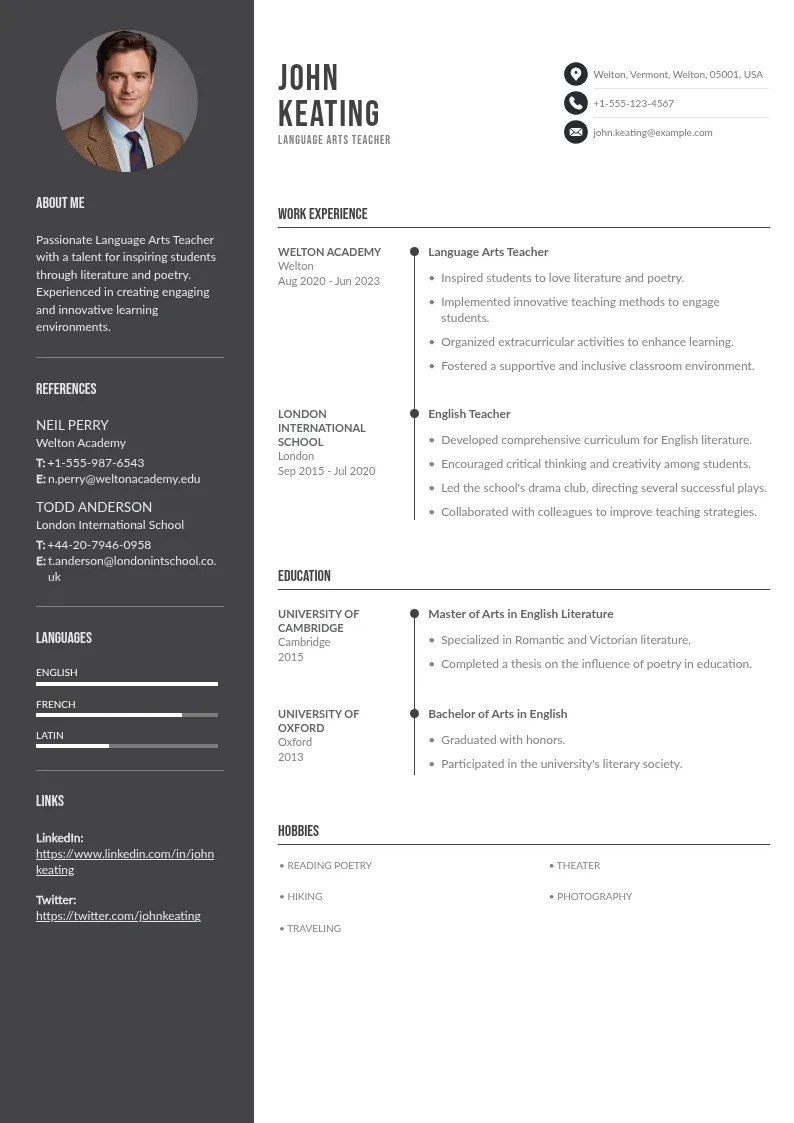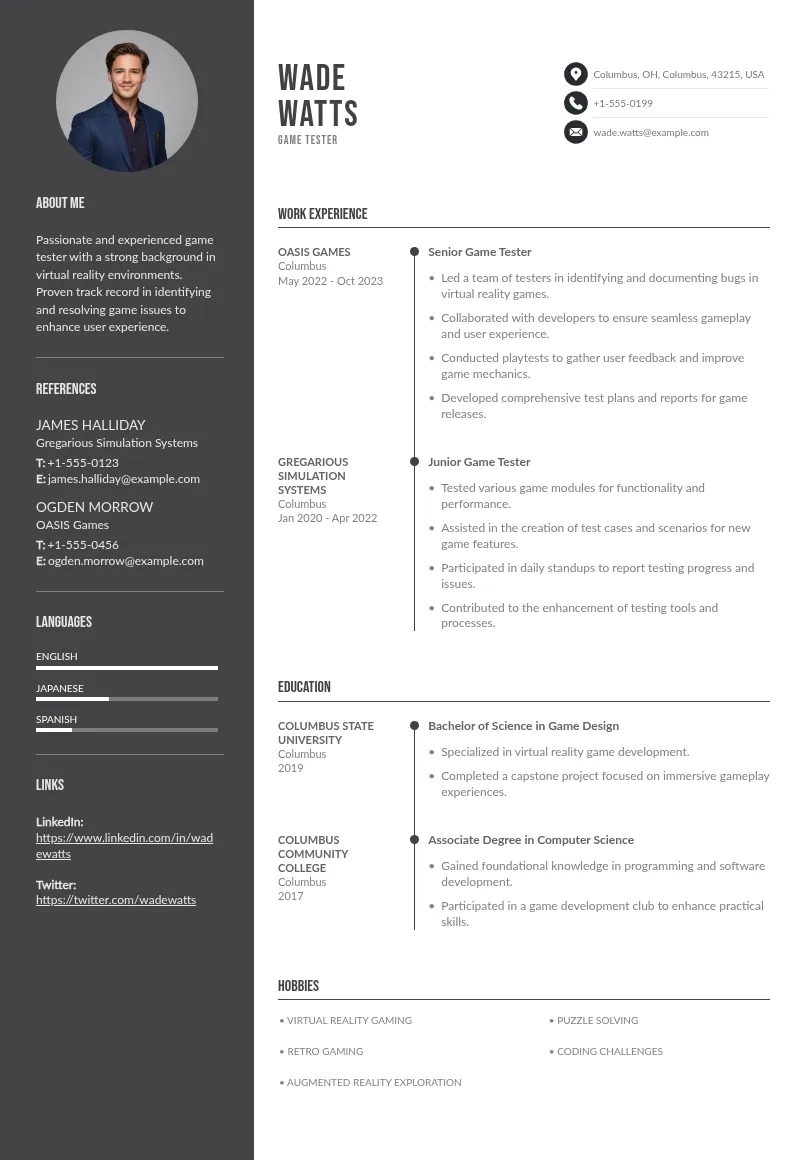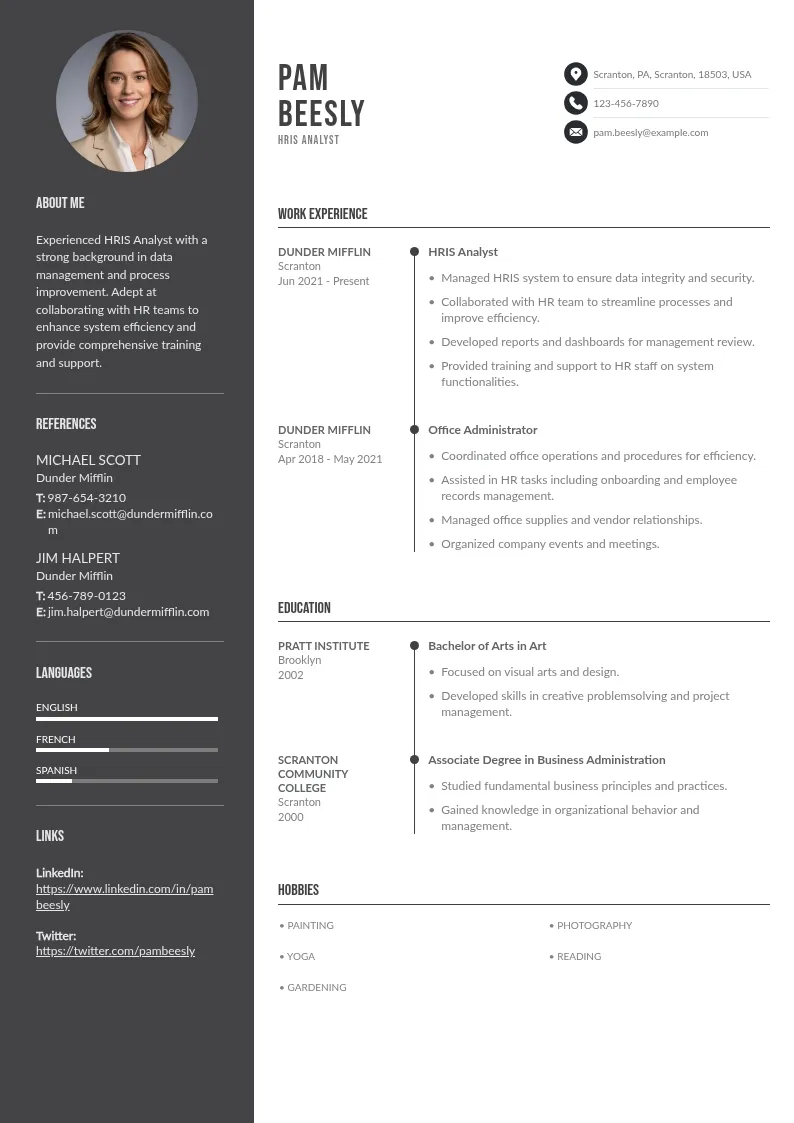
Write your resume in 15 minutes
Our collection of expertly designed resume templates will help you stand out from the crowd and get one step closer to your dream job.


In this article, you’ll find practical tips and advice for crafting a retirement announcement letter for colleagues that feels personal, sincere, and easy to send.
15 Tips for Writing a Retirement Letter for Colleagues
1. Know the Purpose of the Letter
Before you even put pen to paper, get clear on what this retirement letter serves to do.
Your retirement letter isn’t just a formality. It’s about showing appreciation. It’s a way to thank your team, share your retirement news, and give people a chance to respond. It also helps the company prepare for your departure and gives people a clear timeline.
It should let colleagues know:
- That you are officially retiring
- When your last day will be
- A bit about how you feel
- Any transition details they might need
- How to stay in touch (if you want that)
Keep in mind: You don’t need to write a novel. But you do want to make it personal. Think of it as a thoughtful email you’d feel proud to send. Aim for honesty, clarity, and warmth.

2. Decide Who You’re Writing To
This matters more than people think. A message to your direct team will read differently from one addressed to the whole company.
Here are some common options and what they call for:
- Letter to close colleagues: more casual, personal, and emotional
- Letter to your manager or leadership team: a formal notice
- Company-wide message: a friendly but professional tone
- Emails to clients or external contacts: short, polite, and informative
You can absolutely write one main version and adapt it slightly for different groups. Maybe you keep the core paragraph the same but adjust the tone and detail. For example, your note to your team might include an inside joke, while your letter to the CEO should sound polished and professional. Each message should feel appropriate to the relationship.
3. Pick the Right Tone
Tone depends on company culture and how close you are to your colleagues. If you’ve worked in a formal setting, a more polished, formal retirement letter makes sense. If your team is relaxed and friendly, feel free to write like you talk.
Here’s how to strike the right tone:
- Be polite, but not stiff
- Keep it warm, but not overly emotional
- Don’t brag, but do acknowledge your contributions
- Avoid trying to be funny unless you’re sure it will land well
4. Start with the Basics
Begin with a clear, simple opening line. Let people know why you’re writing and when you’ll be leaving.
There’s no need for a long preamble or clever buildup. People appreciate straightforward information.
Stick to this order:
- Retirement status
- Your job title (optional)
- Exact last day - retirement date
This gives people clarity and helps avoid confusion. If you’re sending your letter ahead of an official retirement announcement, you might want to add a line like:
5. Share a Bit About Your Experience
You don’t have to list every achievement in your professional life, but it’s nice to reflect on your time at the company. Mention some highlights, lessons learned, or memorable moments. These small personal touches in your letter can leave a big impression.
This is your chance to acknowledge what the job meant to you, without making it all about you.
6. Say Thank You
No matter your role or how long you’ve been there, thanking the people who supported, challenged, or inspired you is key. A simple thank you to express gratitude goes a long way.
Even if your work experience had ups and downs, find one thing to be thankful for. When you express gratitude, it makes people feel appreciated. It also leaves a lasting positive impression.
7. Offer Support (If Applicable)
If you’re helping with a smooth transition process, mention it in your letter. It shows you care about the team’s success and want to leave things in good shape.
This is especially helpful if your role involves ongoing projects, clients, or internal responsibilities. If you won’t be involved in a formal document handover, you can simply say:
8. Mention What’s Next If You’re Comfortable
You don’t have to share all your retirement adventures, but many people appreciate a little glimpse into what’s ahead. It makes the message feel more human and helps colleagues picture your next chapter.
9. Let People Know How to Stay in Touch
If you’d like to keep in contact with colleagues or friends from work, offer your preferred contact details. This can be a great way to maintain relationships after retirement.
If you’d rather not keep in touch (and that’s totally fine) you can simply skip this part.

10. Keep it Brief and Focused
An effective retirement letter isn’t the place to tell your life story. Keep it to one page and between 250 to 400 words. That’s enough to be thoughtful without overwhelming the reader.
Here’s a basic structure to follow:
- Greeting
- Announcing of retirement and final retirement date
- Brief reflection or highlight of your experience
- Wishing teams continued success
- Thank you note
- Optional: future endeavors, handover info, contact details
- Closing line
11. Check Your Timing
Timing matters. Ideally, send your letter after you’ve confirmed everything with HR or your manager. You don’t want to jump the gun or confuse your coworkers.
General rule:
- Give your employer ample time, at least 2–3 weeks’ notice
- Coordinate with your supervisor or department head
- Make sure it doesn’t go out before a company-wide announcement (if applicable)
If others are announcing your retirement first, send your message right after that. It gives you a chance to follow up personally with your own words.
12. Use a Sample for Inspiration
Not sure how to start? Use retirement letter samples to guide you. Here’s a simple example you can adapt:
13. Avoid These Common Mistakes
Even the best retirement letters can miss the mark if you’re not careful. Watch out for these:
- Making it too long
People appreciate warmth, but not an essay. Aim for short and sweet.
- Being too vague
Don’t just say you’re “moving on.” Be specific: state that you’re retiring and when.
- Skipping the thank-you
Always express gratitude, even if it’s just a general thank you to the team.
- Overpromising help
If you say you’ll help with a smooth transition period, be sure you actually can. Only commit to what you can manage.
- Discussing details
Things like retirement benefits should be discussed in person and not in this letter.
14. What If You’re Retiring Early or Unexpectedly?
Not all retirements happen by the book. Some are due to personal decisions, health, or unexpected changes. In those cases, your letter can still be thoughtful without being too detailed.
You don’t owe anyone your full story. Just be respectful and clear. Most colleagues will understand and appreciate your honesty.
15. Digital vs Printed?
Most retirement letters are emailed. It’s quick, convenient, and expected. But if your workplace values a personal touch (or if you’re especially close to certain people) you might want to hand-deliver a printed or handwritten note as well.
Here’s a good rule of thumb:
- Company-wide or team announcements: Email
- Close colleagues, mentors, or friends: Optional printed or handwritten notes
Final Thoughts
A well-crafted retirement letter doesn’t need to be perfect. However, it needs to be honest and thoughtful. The people you’ve worked with over the years will appreciate hearing directly from you. This is one of the last professional messages you’ll ever write, so it’s worth doing with care. Be clear about your plans, kind in your tone, and sincere in your thanks.
Don’t worry too much about making it sound impressive. A simple retirement letter that reflects your personality will go much further than something overly polished or a very formal retirement letter. Take a little time to think about what you want to say and how you want to be remembered.


















